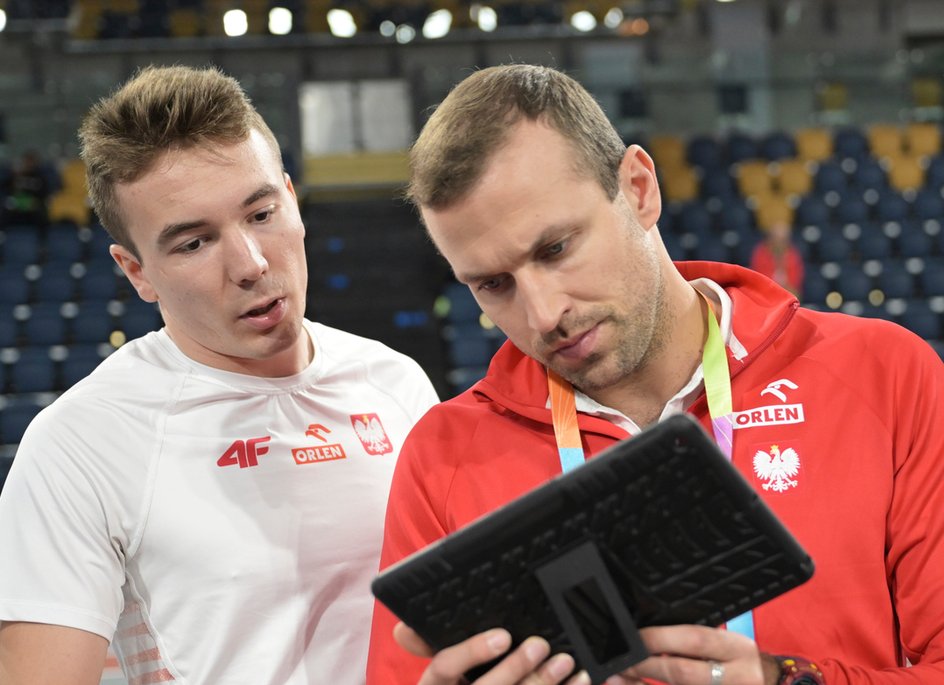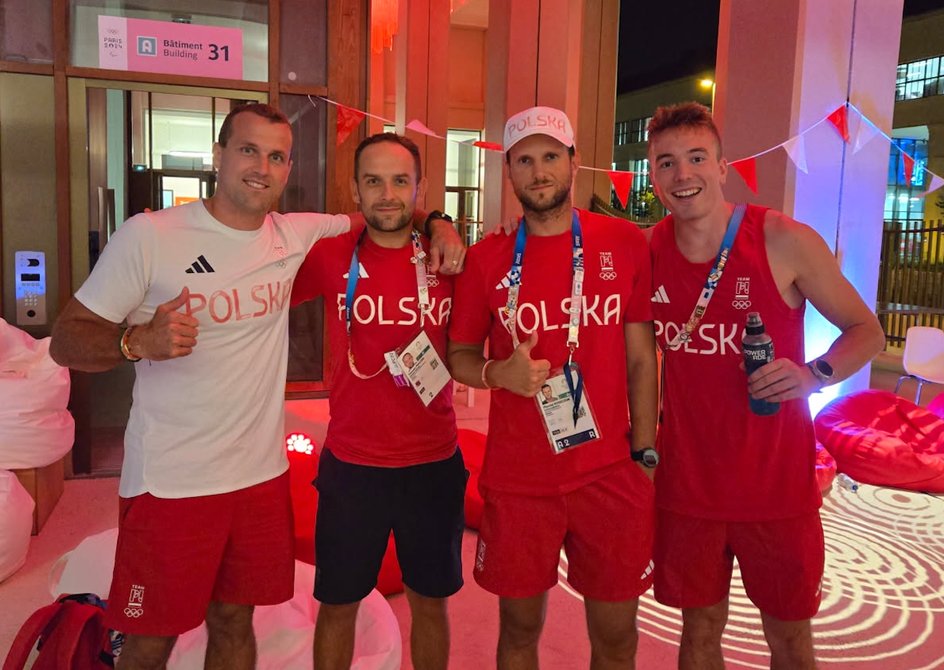"Kuba's fastest run to the first hurdle was the fastest he's ever made. I can honestly say—because I've had it confirmed by measurements—that he was looking at 13:13–13:15 until the 10th hurdle," says Mikołaj Justyński, coach of European Indoor Champion (60m hurdles) Jakub Szymański, who is also persistently striving to be among the world's best in the longer, Olympic distance (110m hurdles). And it seems he's getting closer to achieving that goal.
During last year's summer Polish Championships, the hurdler, born in 2002, equaled the national record (13.25), set two years earlier by his current training teammate, Damian Czykier. After Sunday's start in Berlin, Szymański could have—and actually should have—held the historic lead in his own right. From the very beginning of the race, he began to leave his rivals behind.
"At first glance," it seemed that something had thrown him off his rhythm just before the eighth hurdle. And that from that moment on, everything began to "go south," so much so that he finished only 5th with a time of 13:37 (Japanese Tatsuki Abe won with 13:23). However, coach Justyński, who was present in Berlin and carefully analyzed the entire race, draws a different conclusion.
– The first slower section was only between the 9th and 10th hurdles – he says.
"I didn't like the approach to the 10th hurdle. That's where the first mistake occurred, and it resulted in Kuba rushing too early after leaving the last hurdle. He felt he was winning, focused on it, and wanted to snatch another 100 or two. However, he did it too early, so he lost speed just before the bars. So, everything he had gained up to the 10th hurdle, a distance of 96 meters, he lost on the downhill section," Justyński explains.
After clearing the final obstacle, Szymański was still in the lead. According to our source, he still had a lead of about 0.10 seconds over Japan's Abe. However, he ultimately lost 0.14 seconds to the winner (13:23–13:37).
 Jakub Szymański and Mikołaj Justyński (Photo: Adam Warżawa / PAP (photos) - PS.Onet.pl)
Jakub Szymański and Mikołaj Justyński (Photo: Adam Warżawa / PAP (photos) - PS.Onet.pl) "Kuba ran the run, the last 14 meters, two-tenths slower than usual in Berlin. His average is 1.30-1.35, but here it was 1.50," adds the 33-year-old coach from Łódź, himself a former top hurdler in the country.
There is no shortage of "fuel" Since Szymański, with a time of 7.39, ranks 15th in the world's historic 60m hurdles, and has yet to achieve such a spectacular feat in the 110m hurdles, you might hear fans commenting on the Gdynia athlete's insufficient speed endurance. Or that Jakub runs "only to the seventh hurdle." Justyński vehemently disagrees.
"Kuba's endurance is at a very high level, as are his speed and motor skills. We don't lack fuel; it's more about the purely technical aspects. This event is like a puzzle; you have to put several pieces together. There are also simply five more hurdles in the 110m than in the 60m, so there's a greater chance of making a mistake. In Kuba's case, it's about not getting too close to a hurdle due to excessive speed, as this causes braking. If, in a race with world-class competitors, a competitor loses rhythm, for example, on the sixth or seventh hurdle, gaining enough speed to catch up with their rivals becomes practically impossible," emphasizes the coach from AZS Łódź.
Polish record gives way to the World Championship final Justyński is also working with the aforementioned Czykier (returning to form after a gastrocnemius injury) and Klaudia Wojtunik (100 m hurdles), and the entire group – along with Maciej Ryszczuk, who is responsible for motor preparation – is working to win three qualifications for the World Championships in Tokyo in September.
 Olympic Games in Paris. From left: Mikołaj Justyński, Tomasz Moczek (Iga Świątek's staff), Maciej Ryszczuk, and Jakub Szymański (Photo: Mikołaj Justyński/private archive)
Olympic Games in Paris. From left: Mikołaj Justyński, Tomasz Moczek (Iga Świątek's staff), Maciej Ryszczuk, and Jakub Szymański (Photo: Mikołaj Justyński/private archive) In the men's competition, participation in the medal races of the last four major global events (2021 and 2024 Olympic Games, 2022 and 2023 World Championships) was ensured by the semi-final results (chronologically): 13:32, 13:31, 13:25, and 13:26. The bronze medal, respectively, was secured by: 13:10, 13:17, 13:09, and 13:09.
In Szymański's case, there is no need to overinflate the balloon, but there is also no doubt that the SKLA Sopot athlete simply "has the papers" to achieve a result similar to Czykier, who advanced to the World Championship finals in Eugene three years ago.